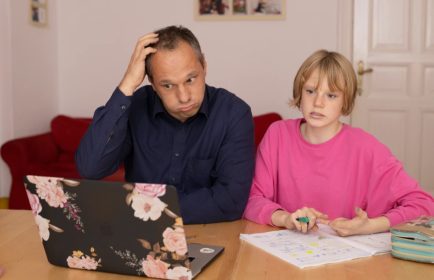From the adorable gurgles and the coos to the goo-goo-ga-gas and ‘dada’ and ‘mama’, your baby will learn and use new words as she grows. Language development in children is a fascinating transition that you, as a parent, will enjoy. It is also an aspect that you may have several questions about, for it plays a crucial part in your child’s overall development. In case you are wondering if your child is catching up with the language skills as she should for her age, Momjunction will help you with it. Here, we tell you about the stages of language development in children, issues associated with it and some tips.
The foundation for language development is laid during the first 12 months while the first three years of life are crucial for acquiring language and speaking abilities. These skills develop in an environment full of sights, sound, and exposure to others’ speech and language. Children younger than three years can better absorb the language, which makes exposing the child to language at this stage all the more important. Infants communicate by crying when they need food, comfort or the parent’s companionship. As they grow, they learn to listen and understand the sounds of the language and can express in monosyllables, and eventually short, broken sentences. That said, the developmental stages and milestones vary from one child to another.
At this stage, babies learn how to communicate with others. Most babies begin to communicate with their parents or caretakers by the time they are 12 months old. By then, they understand most of what is being said to them and can express their needs by pointing to specific objects.
Please note that not all children follow the same sequence of skill development.
3-4 years:
When your child is three to four years old, you can expect them to indulge in long and interesting, although meaningless, conversations with you. At this age, children have a growing vocabulary and better understanding of the basic rules of grammar and may enjoy talking a lot.
Here are some more indicators of language development at this stage.
- Quickly learns new words
- Uses plurals such as “dogs” but makes errors with tenses, such as “drawed” instead of “drew”.
iii. Three-year-old kids speak almost intelligibly and:
- form sentences with four or more words
- know and understand entire nursery rhymes
- use pronouns correctly
- A four-year-old child’s speech is fully intelligible, with a few incorrect usages here and there. Also, a child of four:
- uses longer and more complex sentences
- can narrate long stories with the correct sequence of events
- Is able to question; asks a lot of questions, and has intelligible speech, without many errors.
When your child is a preschooler, you can expect longer, more complex conversations with them.
5-8 years:
By five years of age, your kid will be speaking more grammatically correct sentences and has a larger vocabulary. By six, children may write simple stories and understand how sounds combine to make words.
- By five, a child’s sentences are usually correct but may sometimes be grammatically incorrect.
- A five-year-old child:
- has a more extensive vocabulary
- can offer an opinion in discussions
iii. By six years of age, children understand around 13,000 words.
- A six-year-old child uses all the pronouns correctly and understands opposites.
- By seven, children understand 20,000 to 26,000 words and can recognize errors in other people’s speech.
- At eight, kids make very few errors in grammar. They can carry on meaningful conversations with adults and follow complex instructions, needing less or no repetition. They can read any age-appropriate text and write simple compositions. These are the generic language milestones of growing children. However, some children might reach the milestones earlier and some later than normal. You do not have to worry as long as there is progress in their learning, albeit slow. However, sometimes, if the child faces difficulty in understanding what others are telling them, and in expressing their thoughts or feelings through speech, it could be because of a language disorder.
While language disorders are a cause for concern, they are treatable too. To develop language skills, a child must be able to hear, understand, and remember. The child should physically be able to structure speech as well. When that does not happen, it may be due to a developmental language disorder. One out of twenty children shows symptoms of language disorder. One such language disorder is Specific Language Impairment or SLI which slows the child’s ability to learn a language and may impair his education. Language disorders in children are different from speech disorders. A speech disorder is the inability of the child to make speech sounds. But in language disorder, children produce sounds, and their speech is intelligible.
Children with a language disorder face difficulty in understanding what others say (receptive language) or in expressing themselves (expressive language). Children develop language skills naturally if they have the abilities to form speech: see, hear, understand and remember. Sometimes, they are unable to develop these skills due to different reasons.
Less exposure of the child to hearing a language on a daily basis. The better the exposure to a language, the quicker the child can learn it. Some children face difficulty only in language development, while other developmental processes occur at a normal pace. The cause of expressive language disorder for many children is unknown. But sometimes, expressive language disorder can be due to a developmental impairment too. A receptive language disorder can happen due to genetic reasons. Mixed language disorders may be caused due to a brain injury. Language disorders may happen in children with developmental problems, autism spectrum disorder, and hearing loss. A language disorder, known as aphasia, may happen due to damage to the central nervous system. If your child is having difficulty in speaking even after three years, take them to a doctor to rule out any possible health condition.
Original article: https://www.momjunction.com/articles/language-development-tips-for-your-children_00365938/































Comments